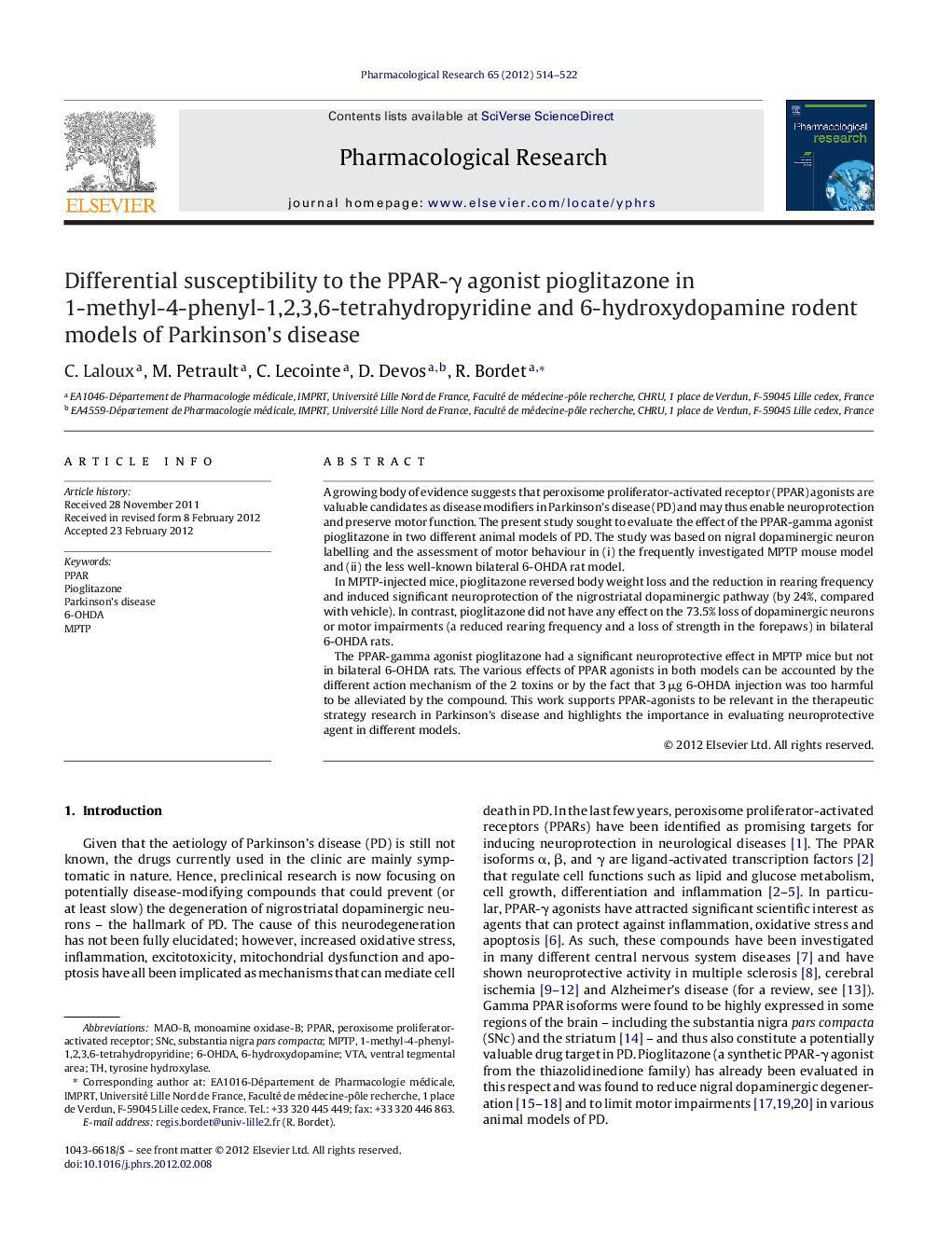| Article ID | Journal | Published Year | Pages | File Type |
|---|---|---|---|---|
| 2562080 | Pharmacological Research | 2012 | 9 Pages |
A growing body of evidence suggests that peroxisome proliferator-activated receptor (PPAR) agonists are valuable candidates as disease modifiers in Parkinson's disease (PD) and may thus enable neuroprotection and preserve motor function. The present study sought to evaluate the effect of the PPAR-gamma agonist pioglitazone in two different animal models of PD. The study was based on nigral dopaminergic neuron labelling and the assessment of motor behaviour in (i) the frequently investigated MPTP mouse model and (ii) the less well-known bilateral 6-OHDA rat model.In MPTP-injected mice, pioglitazone reversed body weight loss and the reduction in rearing frequency and induced significant neuroprotection of the nigrostriatal dopaminergic pathway (by 24%, compared with vehicle). In contrast, pioglitazone did not have any effect on the 73.5% loss of dopaminergic neurons or motor impairments (a reduced rearing frequency and a loss of strength in the forepaws) in bilateral 6-OHDA rats.The PPAR-gamma agonist pioglitazone had a significant neuroprotective effect in MPTP mice but not in bilateral 6-OHDA rats. The various effects of PPAR agonists in both models can be accounted by the different action mechanism of the 2 toxins or by the fact that 3 μg 6-OHDA injection was too harmful to be alleviated by the compound. This work supports PPAR-agonists to be relevant in the therapeutic strategy research in Parkinson's disease and highlights the importance in evaluating neuroprotective agent in different models.
Graphical abstractFigure optionsDownload full-size imageDownload high-quality image (102 K)Download as PowerPoint slide
